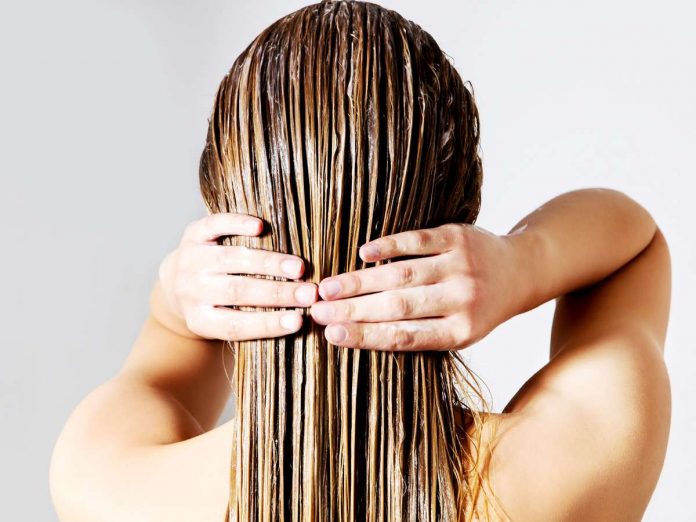What’s your hair care routine? Shampooing, conditioning, maybe oiling sometimes? But the scalp often remains the neglected area of the body, which is easily affected by dry skin, dandruff and other scalp issues.
If you are looking for healthy, lustrous and strong hair, you need to look beyond shampoo and conditioner. This guide will get into the root of the matter by explaining how scalp functions, what causes an unhealthy scalp and what the solutions are that can make a difference.
How does the scalp function?
The scalp is an extension of the skin on our forehead. Just like other parts of the body, it has lipid and sweat glands. The outer layer of the scalp is 0.02mm thick and it works to protect our head against external irritation.
Glands on the scalp work to maintain and lock the skin’s moisture. It has a keratinization cycle of about two weeks, wherein dead cells peel off from the scalp’s surface and new cells grow.
What causes an unhealthy scalp?
A lot can contribute to an unhealthy scalp, such as pollution, stress, food habits, etc. Also, because the barrier function of the scalp is weaker, more problems like redness, dandruff, inflammation, scalp psoriasis, flaking and itchiness occur easily.
However, when you talk about causes for the unhealthy scalp, the biggest culprits are the build-up around the hair follicles. This build-up can be because of a certain problem caused by chemical products that have sulfates, parabens, and alcohol.
Using shampoos, sprays, and conditioners made with these ingredients can take a toll on your scalp’s health. Hence, an unhealthy scalp leads to breakage, dryness and hair loss in extreme cases.
The key is to handle your scalp with care and not dump too many products on it. Many people, in the urge to get glossy tresses, tend to wash their hair every day, which strips the hair of its natural oils, causing dryness, irritation and hindering growth.
If you are facing any hair loss problems, try talking to an expert or visit a dermatologist for professional hair loss treatment, instead of treating it at home.
Here are some tips to maintain a healthy scalp:
TOP 4 TIPS TOWARDS A HEALTHY SCALP:
1. Hydration
Hydration is a cornerstone of beautiful skin and it is also the root of lustrous and healthy hair. Many people overlook the importance of scalp hydration. When overlooked, dehydration of the scalp could lead to dull hair, clogged follicles and dry scalp.
Try the following to keep your scalp hydrated and nourished:
- Drink enough water– For most people, dehydration is the root cause of hair and scalp issues. Drink at least 8 glasses of water a day, to hydrate and make your scalp feel fresh and your hair shiny. Water is also filled with essential nutrients and minerals that are needed for hydrating hair follicles, which will further prevent unwanted breakage.
- Moisturize the scalp– Moisturizing your scalp is another way to keep your scalp hydrated. Aloe vera is said to help moisturize the scalp and alleviate the itching related to dry scalp. Choose a shampoo that is rich in ingredients like hyaluronic acid, argan or tea tree oil, that help moisturize your scalp and hair.
- Condition your scalp– Many experts suggest that you must only use a conditioner in the tip of the hair. However, applying conditioner once in a while to the scalp will leave your scalp and hair hydrated and refreshed. Hair conditioner with panthenol, olive oil, chamomile, vitamin E and fruit oil may also help to condition your scalp.
2. Oiling
This grandma’s age-old remedy never goes out of fashion and it is effective in solving a lot of our hair and scalp issues. There are vitamin E-rich oils that help your scalp with the required nourishment and make your strands glossy and healthy. Here are some oils that you can try:
- Coconut oil– Coconut oil is known as an effective moisturizer for the scalp, meaning it is safe for treating scalp dryness. Massage warm coconut oil onto your scalp and hair and leave it for about an hour. Then wash it off with mild shampoo. Make sure you do not use harsh shampoo or very hot water.
- Essential oils– If your scalp produces more sebum, you may avoid oil regularly. However, there is enough evidence that applying essential oils with antibacterial properties – like rosemary, lavender and lemon oil – can stimulate your scalp. These oils distribute their essence across the scalp, remove fungus and soothe irritation.
- Castor oil– Castor oil is said to improve the scalp health and prevent various scalp problems, such as dandruff and psoriasis. It also acts as a protectant for your tresses by helping it seal the moisture. Many researchers say it helps stimulate the hair follicles, reduce build-up and lighten discomfort so that your scalp can breathe easily.
3. Exfoliation
Your scalp needs exfoliation just like the skin on the rest of your body. When not done, the scalp becomes dry and in many cases leads to hair thinning and dullness.
Exfoliation basically removes the dead skin cells off your scalp and gives room for hair growth. You must work on the root of the hair to get healthy and strong hair. Therefore, taking care of the skin underneath your hair is important.
Following are some ways of scalp exfoliation:
- Exfoliation pack– A variety of ingredients like brown sugar, almonds, and oatmeal crushed together mixed with jojoba oil can make a great exfoliation pack for a scrub.
- Exfoliation brush– Exfoliation brush can be a great tool for the process. Using the bristles on the scalp before oiling can do the trick of exfoliation.
- Exfoliation cleanser– You can use a gentle exfoliating cleanser once or twice a month to fight against build-up, dryness and greasy scalp.
4. Lifestyle Changes
Few lifestyle changes can go a long way in treating and protecting your scalp’s health.
- Look for symptoms like excess hair fall, flaky scalp and dryness, which need extra care. Opt for the best hair growth treatment if necessary that starts with a healthy scalp.
- Intake sufficient omega 3 and 6 fatty acids that help to stimulate hair growth and maintain scalp from within.
- Try to reduce your stress levels, because stress hormones increase sebum production. So, focus on performing activities that keep you happy from within.
- Avoid sun exposure as much as possible. UV-rays can cause serious scalp and hair fall issues. Sunscreen spray, headscarf or a hat offer easy protection.
- Always remember to keep your scalp clean because it will promote good cell turnover and give way for optimal hair growth.





























